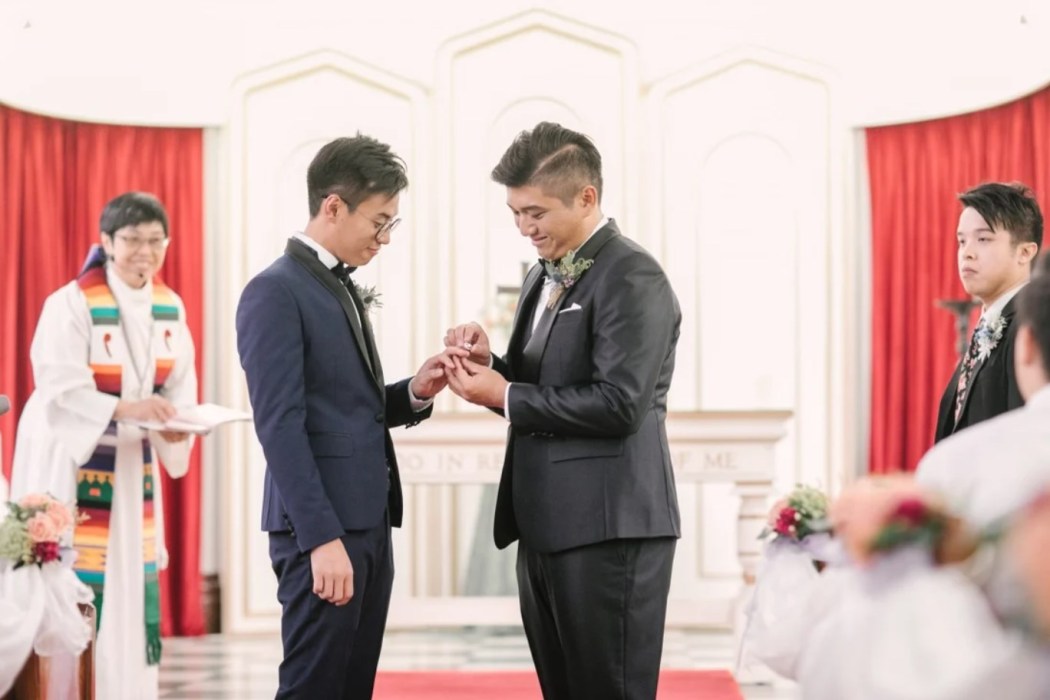A Hong Kong gay widower has dropped a legal challenge against the government over its refusal to recognise him as his partner’s surviving spouse, after authorities confirmed that people in this situation will be treated equally when making after-death arrangements for their deceased partners, regardless of sexual orientation.

In March, gay widower Henry Li filed for a judicial review against the government after officials barred him from identifying the remains of his late husband Edgar Ng as the “official identifier” without authorisation from Ng’s mother. He was also unable to scatter Ng’s ashes at sea as his surviving spouse, Li said. Ng, who suffered from chronic depression, took his own life last December.
Judicial reviews are considered by the Court of First Instance and examine the decision-making processes of administrative bodies. Issues under review must be shown to affect the wider public interest.
However, the Department of Justice clarified its position and regulations on after-death arrangements for surviving same-sex spouses in a letter to Li in July. Li was “misconceived” in his understanding on the legal requirements when applying for scattering of ashes, the letter claimed, as the government has no differentiating policy in its treatment for same-sex or heterosexual spouses.

High Court Justice Anderson Chow heard the government’s clarified position on Wednesday, which stated that “there is no distinction between same-sex and opposite-sex spouses for the term ‘spouse'” under the Coroners’ Ordinance.
Government departments have “no policy” of distinction between opposite-sex and same-sex couples when arranging for body identification with the police or at the Forensic Pathology Service, when receiving services at the Coroner’s court, in after-death services provided by the Food and Environmental Hygiene Department, and when applying for a death certificate from the Immigration Department.
Some exclusions remain
Li will therefore withdraw the judicial review application. “The Respondents have now acknowledged their mistake, clarified their position and confirmed that same-sex widows and widowers would be treated equally,” a statement by Daly & Associates, the firm representing Li, read.

However, their statement also noted that the government’s position excluded a host of other rights and treatments for same-sex widows and widowers in after-death matters. They include: the right to object or consent to organ donation for education or research, their right to be buried together, priority when applying for a cremation permit in cases of natural death, priority when dealing with ashes released from columbaria, and whether they would have priority to be granted permission for burial, exhuming or removing their late spouse’s body.
Unnecessary indignities
“It is regrettable that the Applicant and his late husband had to endure unnecessary indignities during such a difficult time…” the firm’s statement read. “Today, the Applicant may finally find some relief to know that the Respondents will from now on respect the fundamental human rights of same-sex married couples without any ambiguities, and that everyone may grieve over the loss of their loved ones with dignity and equal treatment, regardless of sexual orientation”
“Due to his sexual orientation, the Applicant’s husband Edgar suffered greatly from discrimination he experienced throughout his life,” the statement continued. “Edgar commenced various proceedings on LGBT+ issues precisely because he believed everyone should be treated equally before the law. Henry hopes that Edgar’s wishes could be finally heard and respected and what had tragically happened to Edgar will not be repeated in future.”
In his lifetime Ng had brought two other judicial review proceedings against the government seeking equal rights for non-heterosexual couples. One case involved a rule that prevented him from living with his husband Henry Li in a government-subsidised flat they bought together a year after they married in the UK in 2017. The other case was related to intestate inheritance laws, which cover cases where the deceased has not left a will.
The High Court handed down judgements in favour of Ng and Li in both cases. The government is currently appealing against them. Li took over the cases as applicant after Ng’s passing.
| 💡If you are in need of support, please call: The Samaritans 2896 0000 (24-hour, multilingual), Suicide Prevention Centre 2382 0000 or the government mental health hotline on 18111. The Hong Kong Society of Counselling and Psychology provides a WhatsApp hotline in English and Chinese: 6218 1084. See also: HKFP’s comprehensive guide to mental health services in Hong Kong. |
Support HKFP | Policies & Ethics | Error/typo? | Contact Us | Newsletter | Transparency & Annual Report | Apps
Help safeguard press freedom & keep HKFP free for all readers by supporting our team

LATEST FROM HKFP
HKFP has an impartial stance, transparent funding, and balanced coverage guided by an Ethics Code and Corrections Policy.
Support press freedom & help us surpass 1,000 monthly Patrons: 100% independent, governed by an ethics code & not-for-profit.










